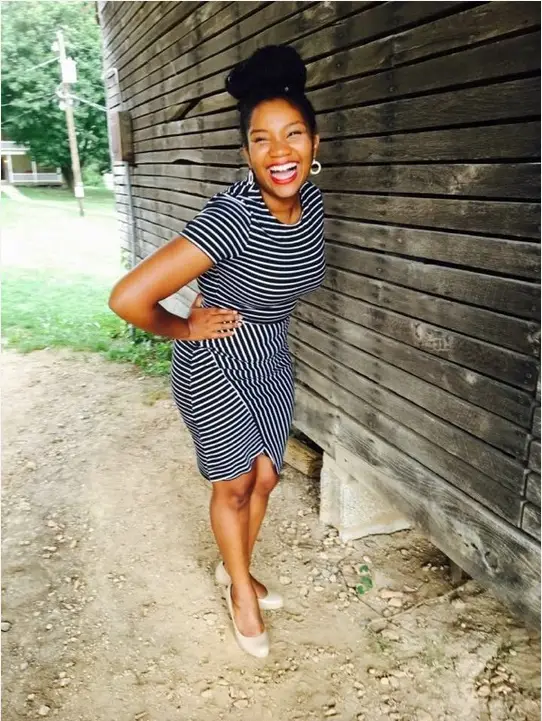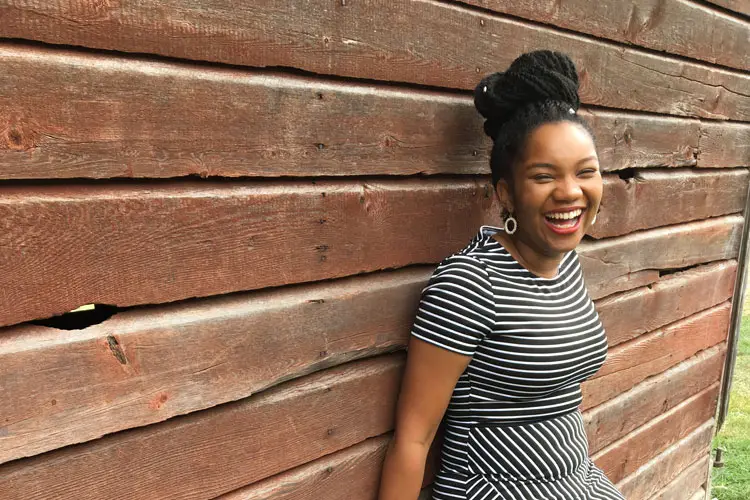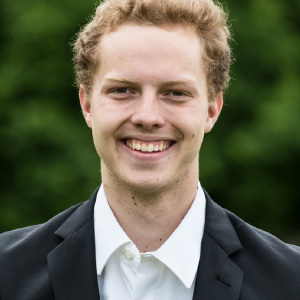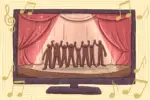Cynthia Davis is a senior Theater major at University of Maryland in Baltimore County with a passion for public service. The list of outreach programs she has participated in is as long as it is impressive. She has been a mentor and counselor at a summer camp called Camp Miracles for underprivileged youth, has taken part in the Baltimore Food Kitchen and has also participated in a program called Baltimore Reads, that collects books from Goodwill and redistributes them in the city.
Applying her fluency in Spanish, Davis has taken multiple trips to Guatemala and Nicaragua to serve in what are called “medical brigades,” which are essentially teams of people who provide free health care, including dental care and medication, to a community for a week at a time. Every year on Martin Luther King Jr. Day, she participates in a service project that ranges from spreading fire prevention information to teaching city youth how to express themselves through dance. The list goes on.
Out of all of the projects and programs that Davis has participated in, there is one that stands out. It is memorable both because of how long Davis has been a part of it and how close it is to her passion for theater. It is called The Story Tree Gang.
The Story Tree Gang is a performance group that uses theater, dance and puppetry to teach life lessons to kids. “We usually try to focus on underprivileged elementary to middle school age kids, too” says Davis. Led by C. Jay Phillips, The Story Tree Gang is part of HOPE Worldwide, an international Christian charity organization that Davis interned at until last year. However, the fifteen-minute productions performed by the group are never religious at all; instead, they focus on how to resolve conflicts without violence, the importance of learning and how to improve personal health.
Davis joined the program when she was seventeen and a senior in high school. “It was an opportunity my church was offering, and I love singing and dancing, so to be able to do something I love while teaching children was really exciting to me,” she says. At the time of her high school graduation, Davis was actually not planning to be a Theater major at UMBC at all. Instead, she was going to Carnegie Mellon University to study Biology. But after a while, it became clear that not only was her major not right for her, but the school wasn’t either.
Her involvement in The Story Tree Gang grew as she sought to find her passion. She became one of the lead actors and also became involved with set repairs and retyping and editing their scripts. The troupe performed at after-school programs, book festivals, the Baltimore Food Festival and other community events, ending each show with a discussion with the children.

“My favorite show we did was called ‘Refrigerator Story,’ which was a parody of ‘West Side Story’ and focused on racism and prejudice,” says Davis. In the production, the meats and the vegetables in the refrigerator hate each other with a passion, which is complicated when it is revealed (at a dance hosted by the dairy section) that Hamburger and Tomato are in love. At first, the other meats and vegetables are outraged and react with violence, but the conflict is quickly resolved.
They learn that the differing groups may be able to offer more than they expect of each other. “It was my favorite because it was so silly and yet a lesson that anyone could understand. Everyone has felt ostracized from a group or unwanted. And I was actually amazed at how well the kids understood the message. They would get it immediately, and they thought it was hilarious, too; even though they didn’t understand any of the ‘West Side Story’ references, they loved us snapping.”
Soon after its inception, “Refrigerator Story” gained new significance because Baltimore was facing one of the most painful and explosive moments of racial tension it had seen in decades—the Baltimore Riots. The Story Tree Gang began doing “Refrigerator Story” almost exclusively for a year. “Even though we never explicitly said anything about race, it was really important because the message was not to make assumptions about other people just because they are different,” says Davis. “There are things to love and like about everybody.”
In such a sensitive and important time for Baltimore, what Davis remembers the most about her performances is not the production itself, but the discussions the group had with the kids afterward. “We obviously knew that all the adults in the room understood we were talking about race right away, it was obvious; but the kids always surprised me with what they understood.
“I remember the discussion we had at this one school in particular. The young boys were asking the men in our cast all these questions, and it moved me because, in the city, there is a real problem with black men not being present in younger kids’ lives. There are a lot of absent fathers—that’s why programs like Safe Zone exist. And so, to see the black men in our cast be able to answer the questions of younger black boys and to be a role model for a moment…it was amazing. And the kids were asking really interesting questions. The discussions were always my favorite part.”
Davis eventually realized that her passion for theater should be reflected in her academic studies, and decided to major in it. Her impact on the communities she performed in is mirrored in the impact that performing had on her own life, and while she has recently stopped her involvement with The Story Tree Gang, it stands out as one of the most important projects she has been a part of. It was a program that let her help children during one of the scariest times to live in Baltimore and acted as an outlet for her personal passion; it was in the midst of her service to the community that she was also able to find herself.

















